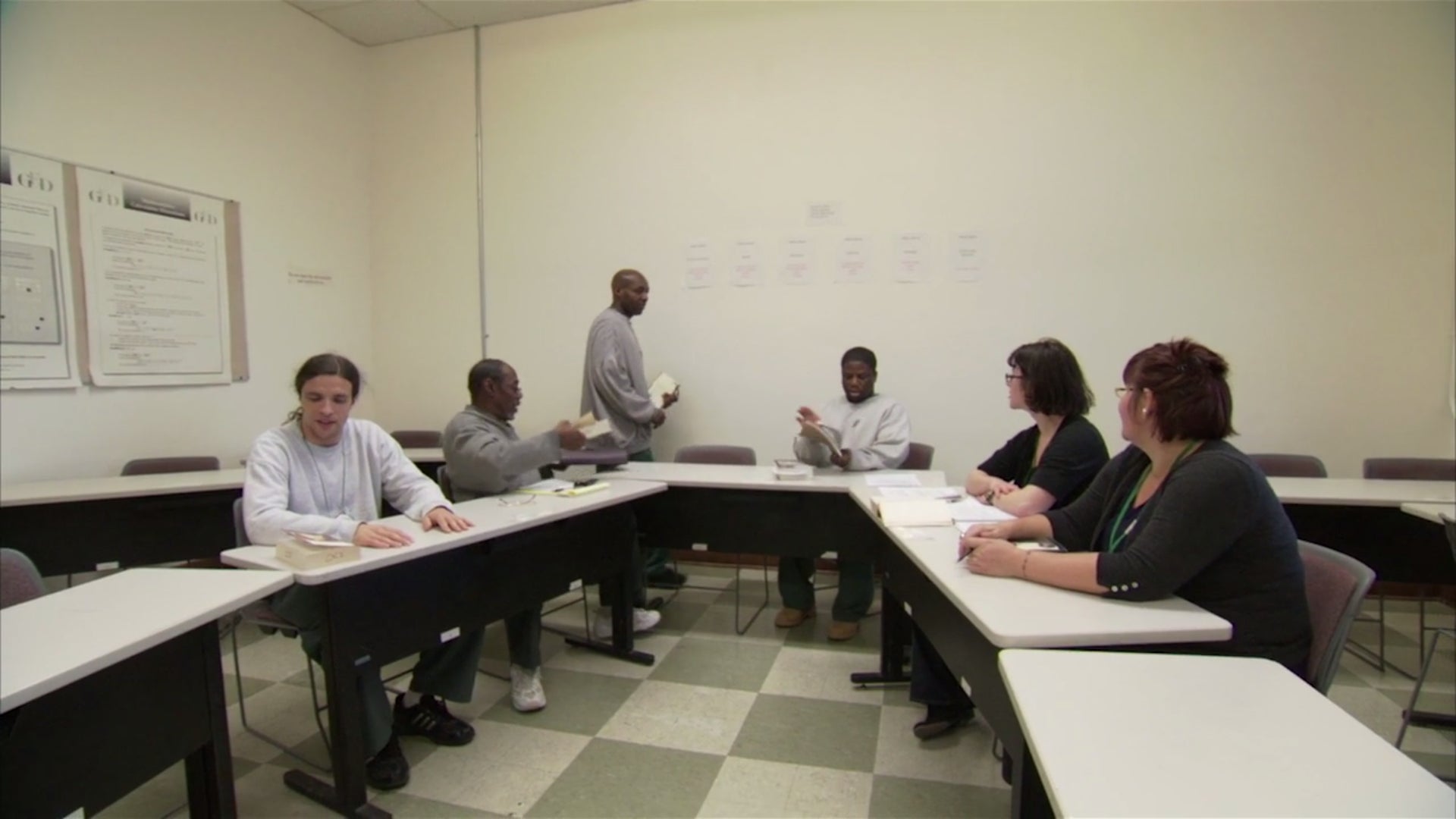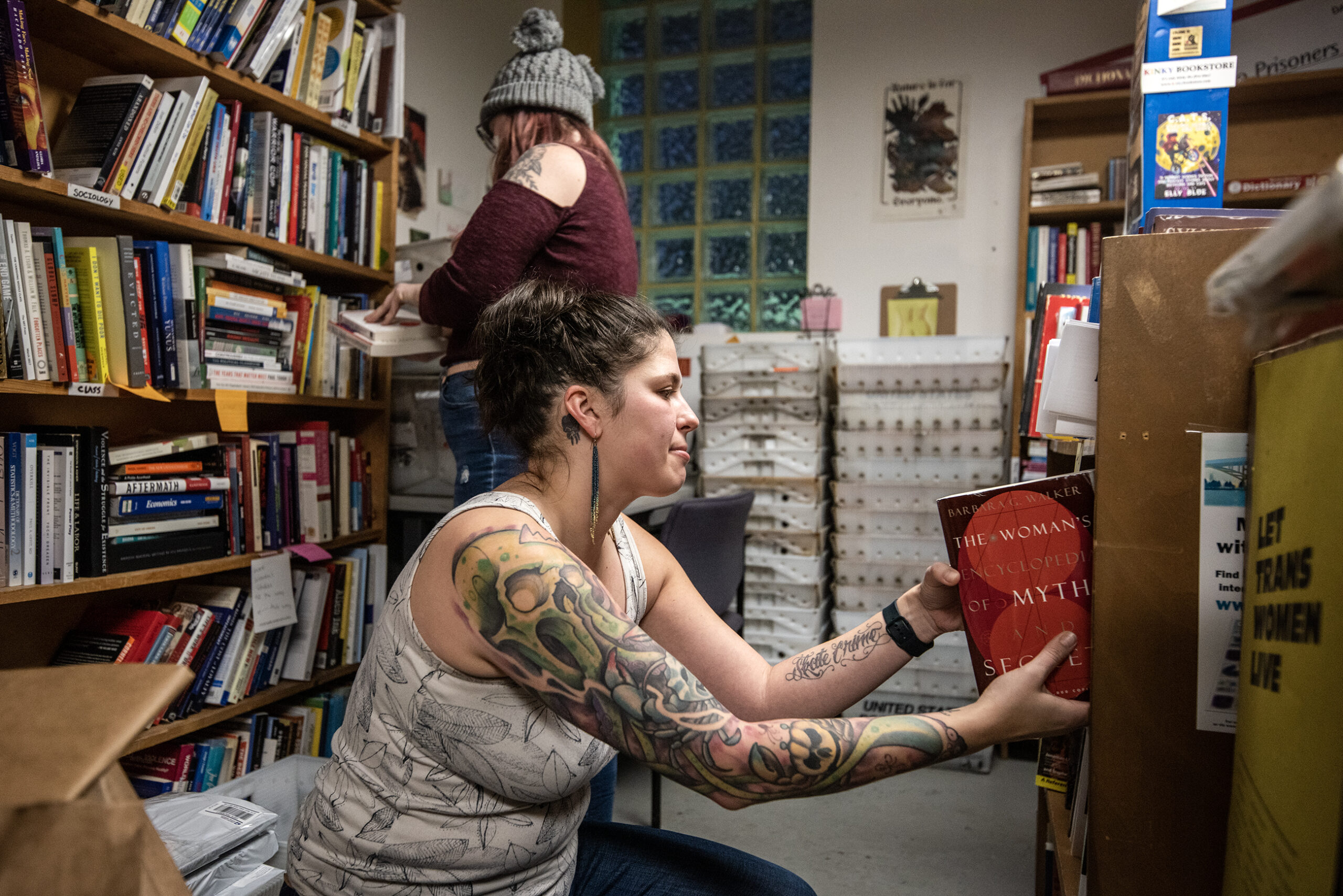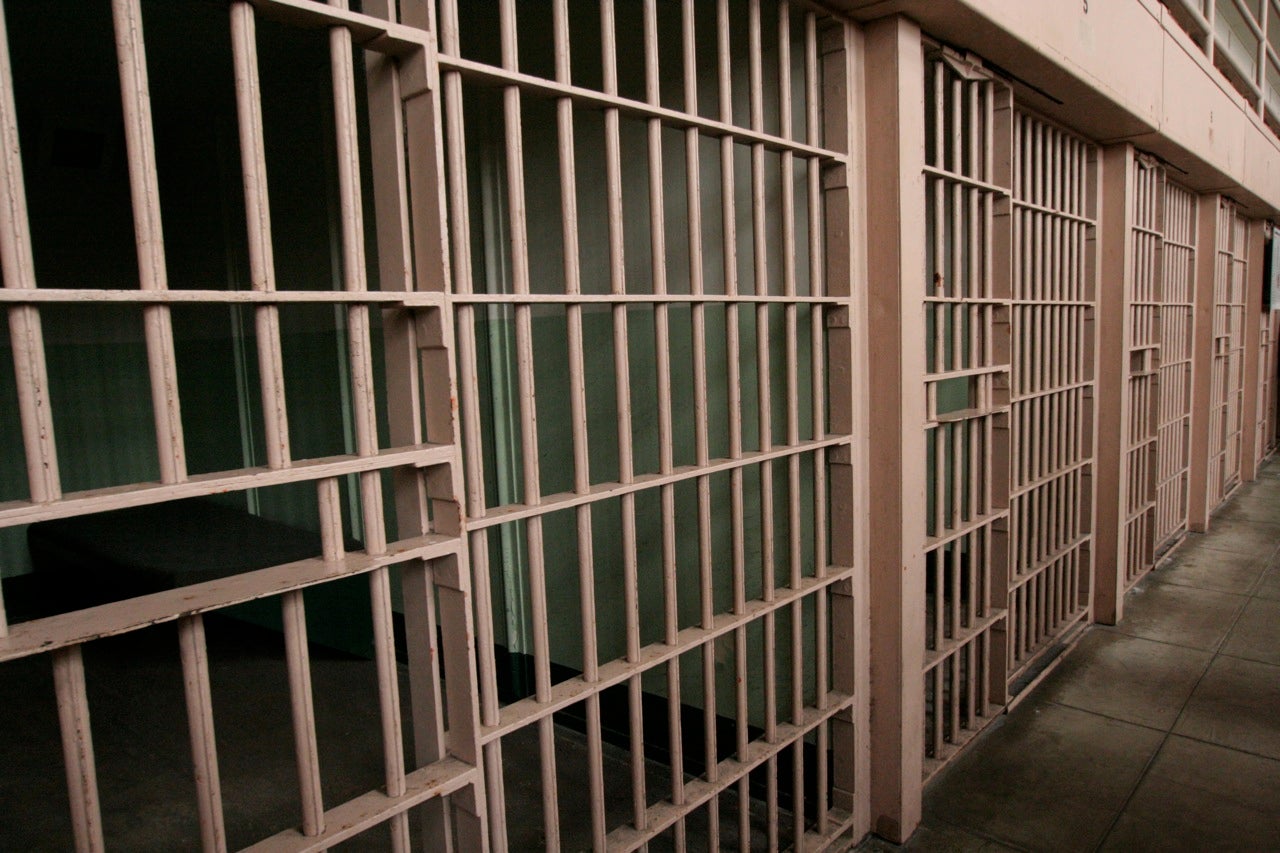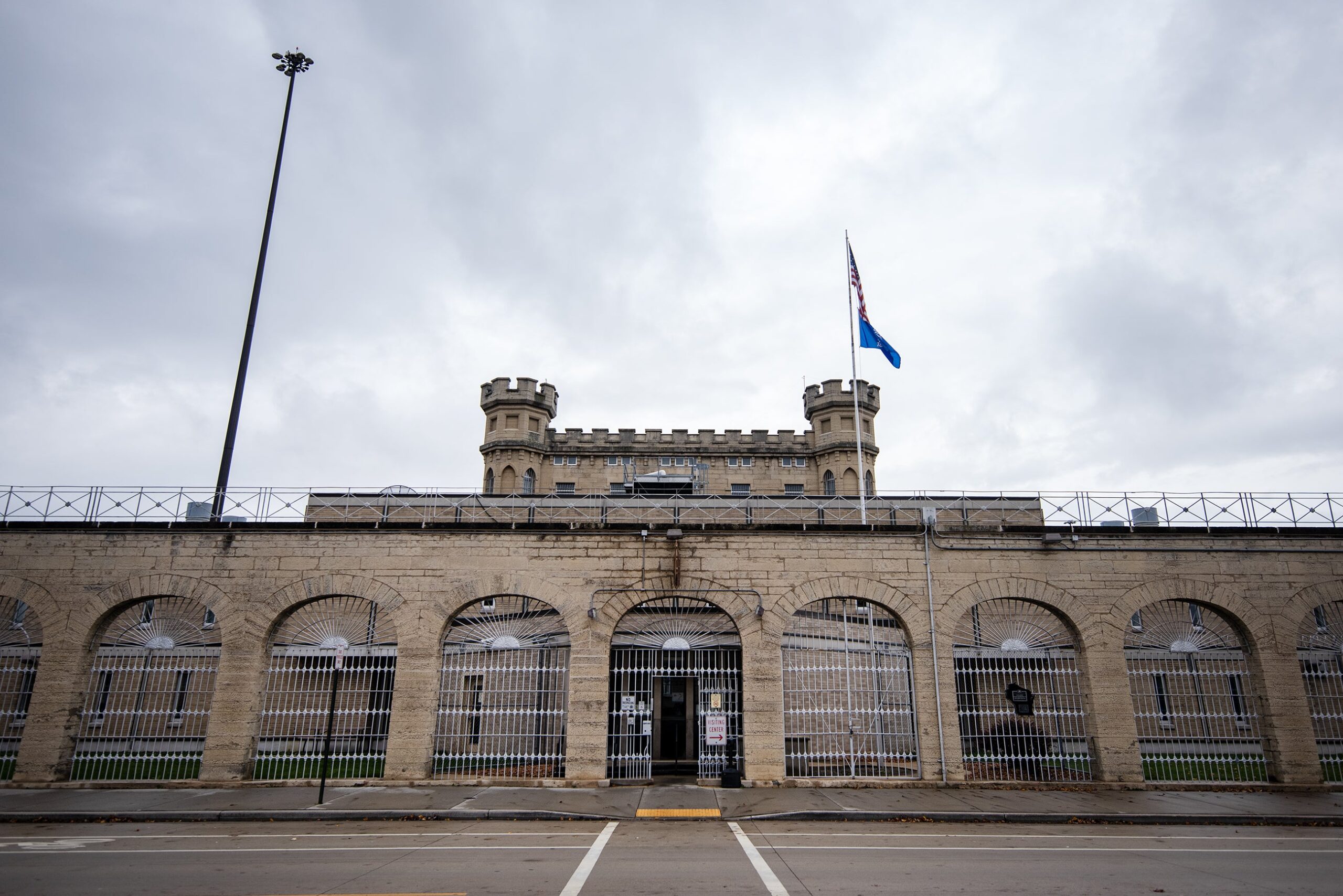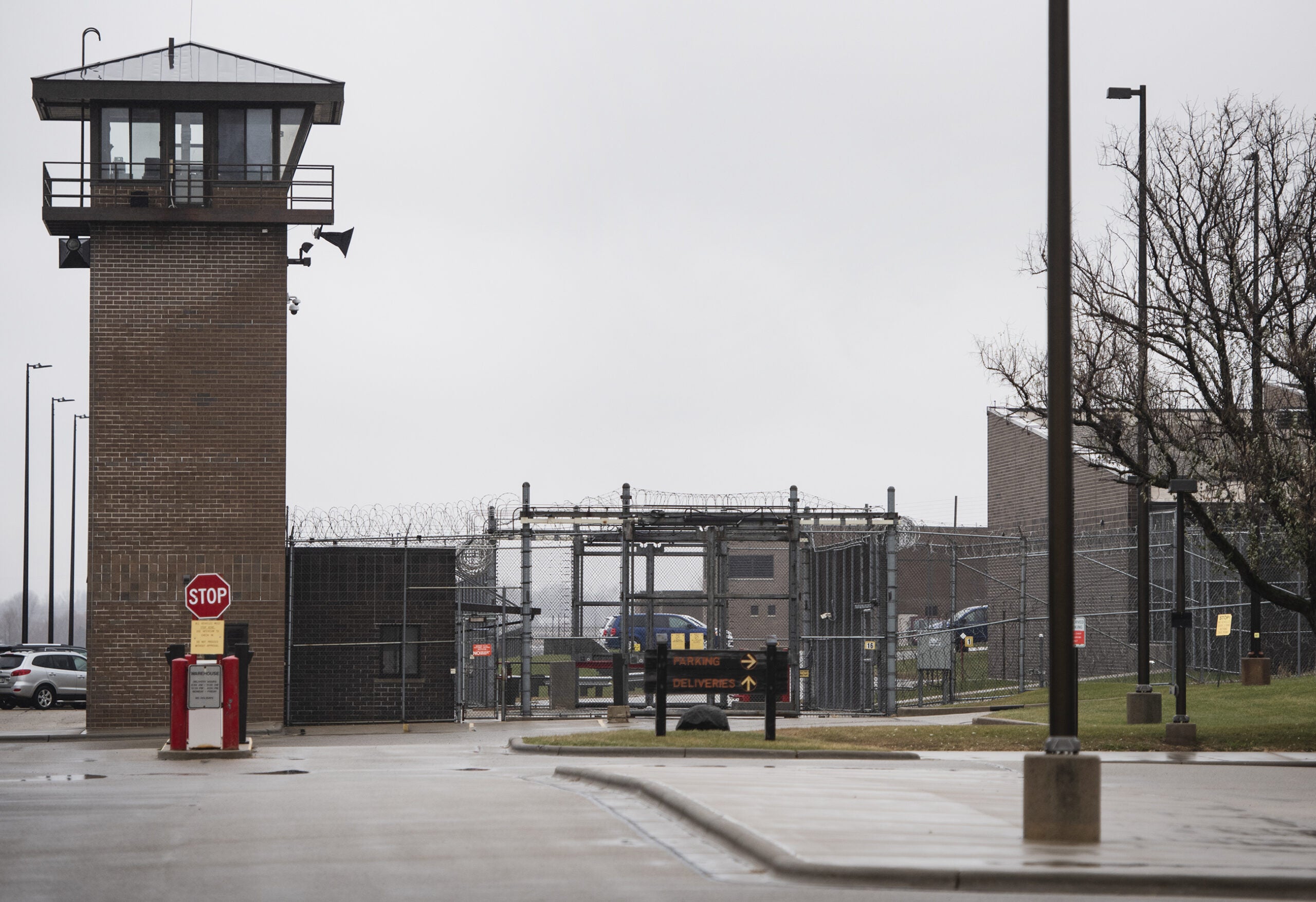“Dostoevsky Behind Bars,” a new documentary about teaching Russian literature to inmates at a Wisconsin prison, will debut this week at the Wisconsin Film Festival.
The students had their own special showing last month: In a small chapel on the campus of the Oakhill Correctional Institution, about 30 inmates gathered one evening in late February to watch the film that documents the class, as well as daily life at this minimum security prison.
Scott Jenkins is serving a life sentence for a murder he committed in the 1980s. He says when he read Dostoevsky’s “Crime and Punishment” in the Oakhill class, he was able to identify with the main character Raskolnikov, who murders his landlady.
Stay informed on the latest news
Sign up for WPR’s email newsletter.
“I started reading about Raskolnikov, and it’s like, wow,” said Jenkins. “He did all these horrible things, but coming to prison for him was almost like a grace and redemption for him, a chance to rebuild what he’d torn apart.”
In addition to Dostoevsky, inmates read Tolstoy’s “Anna Karenina” and several short stories by Chekhov.
Joshua Hopkins, who is serving time for drug dealing, says in the documentary that he knows most people think guys like him can’t change. But he says the University of Wisconsin graduate students teaching the class gave him a different perspective.
“It’s another thing to have people who have that heart, who have that humanity, who have the want to reach out,” said Hopkins. “And that’s what keeps people like me wanting to reach back, wanting to change.”
And for the teachers like University of Wisconsin-Madison graduate student Jose Vergara teaching in prison is more than just a chance to practice his classroom technique. He’s convinced reading literature, especially Russian literature, can change the lives of the inmate students he’s teaching.
“Taking these classes isn’t going to help them get out of prison any sooner – it’s not a bargaining chip,” said Vergara. “But they get different perspectives, different world views – the sort of dynamic, maximalist Russian world view where everything’s really a struggle and you’ re working through these big ideas in everyday life.”
“It helps them think about what they’ve done and what their lives are in prison, and perhaps change in some way, big or small,” added Vergara.
One of Vergara’s students, Daniel Wright, was just released this month after he served three years for stabbing someone in a drunken fight. In the film, Wright says in the film that reading “Anna Karenina” helped him understand something he’d never realized: “That women do have feelings, and seeing that Anna Karenina actually had some issues she was dealing with Alexander Alexandrovitch, that she wasn’t able to reveal to him because of the kind person he was,” he said. “It gives you real-life scenarios so you are able to make better choices in the future.
The director of the film, Marc Kornblatt, says he hopes the film provides a window into the lives of men – some of whom even he believes should never get out, and others whom he thinks maybe shouldn’t be locked up for as long as they are.
“Some of them maybe really horrible people, and some of them who I sat next to may have dome some horrible acts,” said Kornblatt. “But for that two hour moment, the reading and the writing was as good as it gets in the world of discourse about literature and language.”
The film is the Golden Badger award winner at this year’s Wisconsin Film Festival. It will have its first public showing at the festival on Saturday.
Wisconsin Public Radio, © Copyright 2024, Board of Regents of the University of Wisconsin System and Wisconsin Educational Communications Board.

